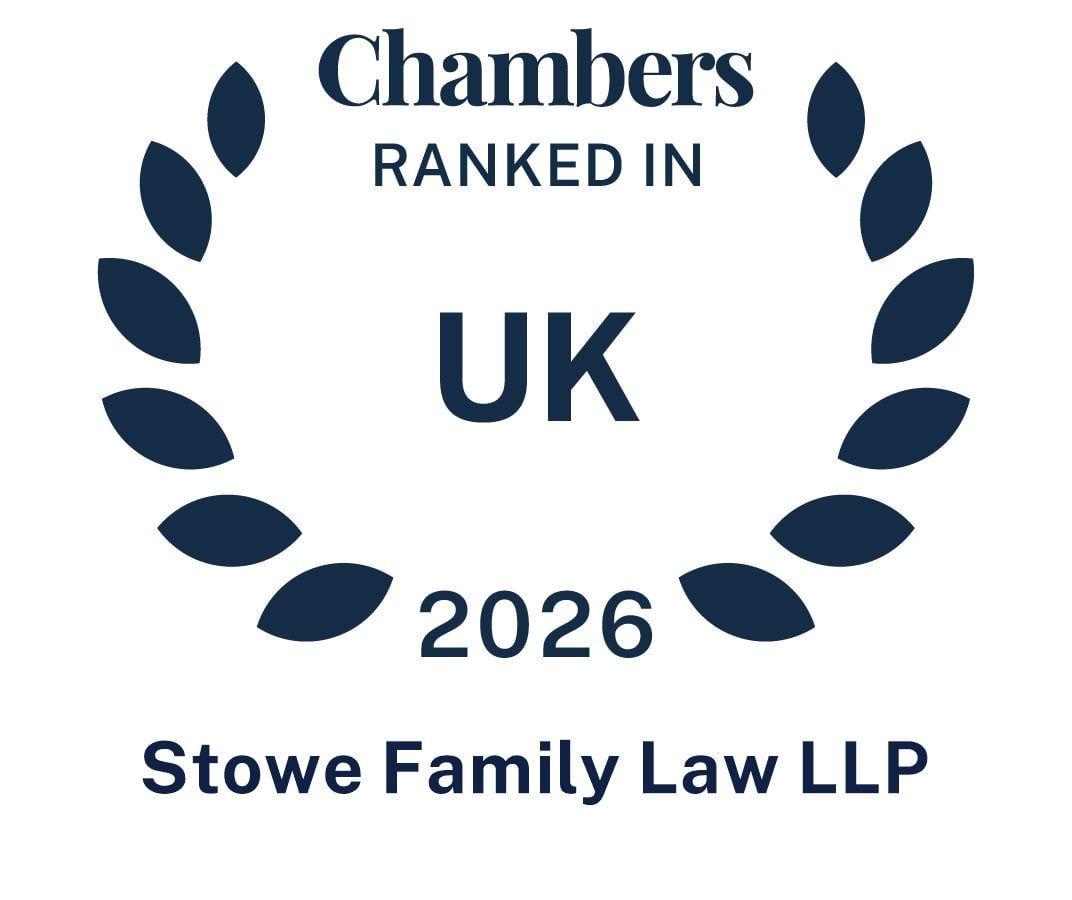What is assisted reproduction?
Assisted reproduction allows someone to get pregnant through treatment, without the need for sexual intercourse.
read moreThere is a range of fertility treatment options outlined by the NHS; however, many people choose to have these treatments done privately.
Some examples of assisted reproduction treatments include:
- Intrauterine insemination (IUI)
- In vitro fertilisation (IVF)
- Intracytoplasmic sperm injection (ICSI)
- Donor insemination
- Egg donation
Fertility clinics that offer these treatments are regulated by the Human Fertilisation and Embryology Authority (HEFA)
Beyond these methods, some individuals may choose Surrogacy or co-parenting, which have their own legal considerations. Regardless of the route you go down, our fertility lawyers can give you tailored legal assistance.
Key Assisted Reproduction Information
-
Who can use assisted reproduction?
-
Assisted reproduction is avaialble to couples who are struggling to conceive, whether this be medical issues, or same-sex couples. Single parents by choice can also use assistive reproductive technologies. There are NHS and other guidelines to be aware of.
-
Why use a Fertility Lawyer?
-
The law around fertility is often complicated, particularly when it comes to legal parenthood of the child. To ensure the smoothest and most pain-free process for you and your partner, a fertility lawyer can help highlight any potential issues and ensure all procedures are carried out with the correct legal paperwork.
Our other fertility law services

What preconception advice can fertility lawyers give me?
Before embarking on fertility treatment, your chosen clinic might suggest, or may even require, that you speak with a solicitor to explain the legal consequences of your treatment.
Our fertility law team can advise on:
- Legal implications of the use of donated gametes, including information rights
- Ensuring you are recognised as the legal parent, including the options and procedures for this
- The importance of consent both immediately and for the use and storage of embryos going forward
- Discussing and documenting a platonic parenting agreement
Meet our expert fertility law solicitors

How can fertility lawyers help with a dispute or a change in circumstances?
Our fertility solicitors can explain the implications of any changes to your plans, giving advice and support to minimise the impact.
read moreFor example:
- Reviewing and/or varying your agreement for embryo storage and future use, should you and your partner/co-parent separate or change your mind
- Disputes regarding continued use and/or storage of embryos
- Use of embryos posthumously
- Importing and exporting embryos
We’re proud to be a member of The Surrogacy Network, the leading directory and platform for surrogacy professionals.
We offer an award-winning service
Advancements in reproductive medicine have meant that there are now more options available to people expanding their families. We are passionate about supporting you navigate those options and ensuring your family is legally protected.
Why choose Stowe Family Law?
As the only national law firm fully dedicated to family matters, our expert team offers professional advice so you can make a fully informed decision about your divorce.
We are proud to be rated ‘Excellent’ on Trustpilot. Check out our reviews to see what our previous clients have said about our service.
We feature in The Legal 500 rankings and are fully authorised and regulated by the Solicitors Regulation Authority (SRA).
We keep you informed. Take a look at our support section, which features a range of helpful guides, focusing on important topics including finances and mediation.
Let's ask Legal 500
Senior Partner of the firm, Julian Hawkhead received a special mention: ‘I trust Julian and value his opinion and advice. I feel he has my best interests at heart, but at the same time, tells it how it is.’Let's ask Mr D P
Daniela has been a great help so far. She has explained all the steps relevant to my case/situation and also advised the best steps to take in regards to my case. Highly recommended. Thank you so muchLet's ask Legal 500
Managing Partner Liza Gatrell is a stand-out Key Lawyer, noted for her specialisms in both domestic and international surrogacy matters. She is joined by ‘brilliant solicitor’ Team Leader Partner Samantha Armour, her inaugural noting in the directory for Stowe Family Law.Let's ask Legal 500
Rebecca Calden-Storr- extremely good, very good with clients, unflappable. Hannah Stubbs- one to watch. Extremely knowledgeable in the area and highly organised. Excellent.Let's ask Ms A H
I moved with Amy when she went to Stowe Family Law. She helped me navigate a difficult journey in a professional and caring manner. I felt safe and always knew she had my best interests at heart. Her advice was always on point, especially the times I could have easily let my emotions take over. I would most definitely recommend her.Let's ask Legal 500
Katy Jordan has excellent client care skills. She is supportive and sensible and guides her clients clearly through the process. Zoe Carter has the best interest of the client at the core of her work.Let's ask Mr S N
Pooja Patel helped me through cases involving my children and divorce. She is very supportive and was very amazing and got the results needed in very difficult circumstances. I’m thankful l had Pooja at my side and do not know what l would have done without her.Common questions on fertility law
Common questions on fertility law
-
What UK legislation exists within fertility law?
Examples of legislation that regulates assisted reproduction in the UK include:
There is also guidance in place regarding assisted reproduction and handling passport applications
-
How are fertility clinics regulated?
Fertility clinics and human embryo centres are regulated by the HFEA. They need to apply for a licence with this body to operate and inspections are completed before granting or renewing a licence.
Clinics and research centres need to be inspected every two years in line with the HFEA’s Code of Practice, although inspections can be done more frequently if there has been a complaint or another reason to do so.
As well as this, clinics legally need written consent before carrying out any work. This covers the treatment itself, as well as the storing of eggs, sperm and embryos. Beyond this, consent is required for donation, surrogacy, parenthood and more.
-
Who are the legal parents when using IVF in the UK?
Fertility law covers the intricacies of IVF and solicitors can help you understand it in more detail before going ahead with it.
IVF works in the same way as natural conception when determining who the legal parents are. If a couple have used their own egg and sperm in IVF and are married or in a civil partnership, that means both parties are the legal parents (assuming the non-carrying partner hasn’t refused consent). However, if a couple aren’t married, the pregnant partner will automatically be the child’s parent, whereas their partner needs to apply for parental responsibility.
If the egg or sperm has been donated, the person who gives birth to the child will be the legal mother and have parental responsibility with their married or civil partner. If they are unmarried, the partner will need to apply for parental responsibility. Meanwhile, the person who donated the egg or sperm will not have any parental responsibility.
-
What are the complications around unmarried couples and fertility law?
An unmarried couple need to complete the correct HFEA forms before undergoing assisted reproduction.
The right protocol should be followed before conception for the non-carrying partner to obtain legal parenthood. This involves having counselling and receiving clear guidance. Any paperwork needs to be completed correctly, otherwise this partner won’t be considered a legal parent. Sometimes, the paperwork might be incorrect or misplaced by the fertility clinic, which is where an experienced fertility lawyer may need to intervene.
In addition, if the conception happens at home and the pregnant partner is unmarried, this can complicate things. The donor could be recognised as the legal father of the child, even if this wasn’t the intention. Their name would be recorded on the child’s birth certificate, making them liable for paying child maintenance. On top of this, they can have a say over arrangements for the child with an application to the Courts.
This is why it is so important to seek comprehensive legal advice from a fertility law specialist before considering assisted reproduction. Some people choose to enter into a pre-conception agreement so that the legal aspects are clear.
Latest advice
Newsletter Sign Up
Sign up for advice on divorce and relationships from our lawyers, divorce coaches and relationship experts.
Privacy Policy Close newsletter modal






















